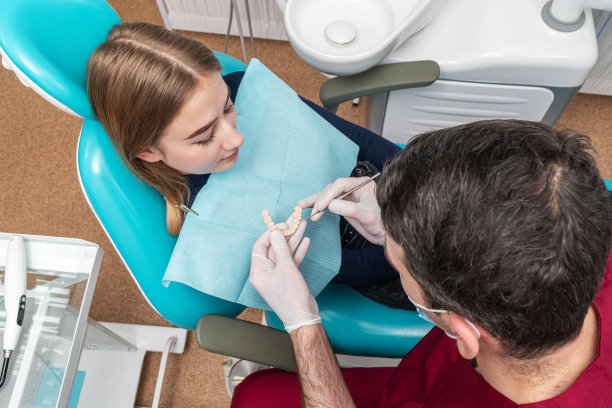Summary: Undergoing a dental filling is an essential procedure for maintaining optimal oral health. To ensure a smooth experience and effective recovery, it is crucial to follow specific guidelines prior to the treatment. This article outlines four key areas to focus on: understanding the procedure, preparing mentally and physically, consulting with your dentist, and aftercare tips for a successful recovery. By adhering to these guidelines, patients can enhance their experience and promote better oral health outcomes.
1. Understanding the Dental Filling Procedure

Before undergoing a dental filling, its vital to understand what the process involves. Dental fillings are used to treat cavities formed by tooth decay. The procedure generally starts with the dentist numbing the affected area, ensuring you remain comfortable throughout the treatment. After local anesthetic administration, the decay is removed, and the area is thoroughly cleaned.
Once the cavity is prepared, your dentist will choose the appropriate filling material, whether amalgam, composite resin, or gold. Each type has its advantages and disadvantages, and understanding these differences can help in making an informed decision about your dental care.
Knowledge about the procedure can help reduce anxiety. Patients who understand what will happen during the filling process are often more at ease, leading to a more positive treatment outcome. Therefore, take the time to educate yourself about dental fillings before the appointment.
2. Preparing Mentally and Physically for the Appointment
Preparation for your dental filling appointment goes beyond understanding the procedure; it also includes mental and physical preparation. Mentally, it鈥檚 essential to approach your visit with a positive mindset. Fear or anxiety about dental visits can create a negative experience, which is often alleviated through breathing exercises or visualization techniques.
Physically, consider setting aside time before your appointment to ensure you are well-rested. A good night鈥檚 sleep can enhance your ability to cope with stress and discomfort. Additionally, eating a balanced meal before your appointment will help maintain your energy levels throughout the treatment.
Its also beneficial to arrange for someone to accompany you to the appointment. A friend or family member can provide support and help keep your spirits high, making the experience less daunting. Preparation is key to feeling comfortable and secure during the procedure.
3. Consultation and Communication with Your Dentist
A crucial step before undergoing dental filling is to have a detailed consultation with your dentist. This is the time to discuss any concerns or questions you may have regarding the procedure. Open communication allows your dentist to address specific fears and provide reassurance about the process.
During the consultation, it is advisable to discuss your medical history and any medications you are currently taking. This information is essential for your dentist to tailor the treatment to your specific needs and prevent complications. Dont hesitate to ask about the types of materials available for filling or the expected duration of the procedure.
By fostering a good rapport with your dentist, you can ensure a smoother treatment process. Building trust through effective communication can make a significant difference in your overall experience with dental fillings.
4. Aftercare Tips for Successful Recovery
Post-procedure care is vital for a successful recovery after a dental filling. After your treatment, you may experience some sensitivity or discomfort in the filled tooth. This is typically normal and can be managed with over-the-counter pain relief, as recommended by your dentist.
It鈥檚 crucial to avoid chewing hard foods for at least 24 hours post-extraction to allow the filling to set properly and minimize any risk of dislodgment. Instead, opt for soft foods and maintain good oral hygiene practices to promote healing. Rinse gently with saltwater to keep the area clean and reduce swelling.
Lastly, schedule a follow-up visit with your dentist to ensure everything is healing correctly. Monitoring your filling and the surrounding area helps catch potential problems before they worsen, contributing to long-term dental health.
Summary:
In conclusion, preparing thoroughly before undergoing a dental filling can significantly enhance your overall experience and promote optimal oral health. This includes understanding the dental filling procedure, physically and mentally preparing for your appointment, consulting effectively with your dentist, and adhering to aftercare recommendations for a smooth recovery. Taking these steps can help alleviate anxiety and ensure that your dental health remains in top condition.
This article is compiled by Vickong Dental and the content is for reference only.
Vickong Dental
Vickong Dental is a large medical group established in Hong Kong in 2008 by professors from well-known medical universities in Guangdong and Hong Kong, as well as medical doctors from key national '985' universities (including Master's supervisors and senior professors). The chain of branches brings together expert dentists with PhDs and Master's degrees from Hong Kong and Mainland China, committed to providing high-quality dental treatment.
"Vickong Dental Practices the University Motto of 'Healing and Serving Society,' with a Stable Operation for Sixteen Years. It Has Been honored with Hong Kong Enterprise Leaders's Choice,' and is a Global Trusted Implant Center for the Nobel Implant System. Recommended by Hong Kong Metro Broadcast and Guangdong Television, it Serves Customers from Over Thirty Countries and Regions, Gaining the Trust and Favor of Citizens from the Guangdong-Hong Kong-Macau Greater Bay Area and Surrounding Cities.

Thousands of customers' unanimous praise
The most recognized and highly recommended dental service by customers in the Guangdong-Hong Kong-Macau Greater Bay Area
We Ensure You Receive Detailed Care and Attention Here
Hong Kong standards, Shenzhen prices, Your Trusted English-speaking dentists

Vickong Dental Medical-Grade Instrument Disinfection Process
Vickong Dental Medical-Grade Instrument Disinfection Process

Vickong Dental Chain: A Warm and Comfortable Environment for Treatment






Appointment Hours

Q&A
Why choose Vickong Dental?
Vickong Dental practices the university motto 「Medicine to Benefit Society」, with each branch bringing together highly qualified dentists with doctoral and master’s degrees from Hong Kong and the Mainland, and has maintained seventeen years of steady operation。Recipient of 「2024 Hong Kong Enterprise Leaders Brand」, 「2025 Hong Kong Enterprise Leaders Brand」, a Nobel Biocare Global Trusted Implant Center, and a brand recommended by Metro Radio Hong Kong and Guangdong TV。
To date, we have served customers from more than thirty countries and regions,earning exceptionally high word-of-mouth recognition and trusted recommendations from residents across the Guangdong-Hong Kong-Macao Greater Bay Area and surrounding cities
We have eight major branches in Zhuhai、Shenzhen,and a consultation and service assurance center in Hong Kong,so you can book a free consultation at any time for any questions,which is very reassuring.
If I do not accept the quotation after the CT scan, will I be charged??
No! As long as the actual treatment has not started, you will not be charged any fees.
Will there be any additional charges during the treatment process?
No, there won’t be any additional charges. Before treatment begins, we will clearly explain the treatment plan and its corresponding fees. Only after the patient agrees and signs the consent form will we proceed with the dental service.
Can I pay in Hong Kong dollars?
Yes. Vickong Dental accepts payment in Hong Kong dollars. The amount will be converted based on the exchange rate of the day, and the applicable rate will be clearly communicated to you in advance.
Can I reschedule my appointment at any time?
Yes. Please contact us via **WeChat** or **WhatsApp** as early as possible, providing your original appointment time and details, along with your preferred new date and time slot for rescheduling.













